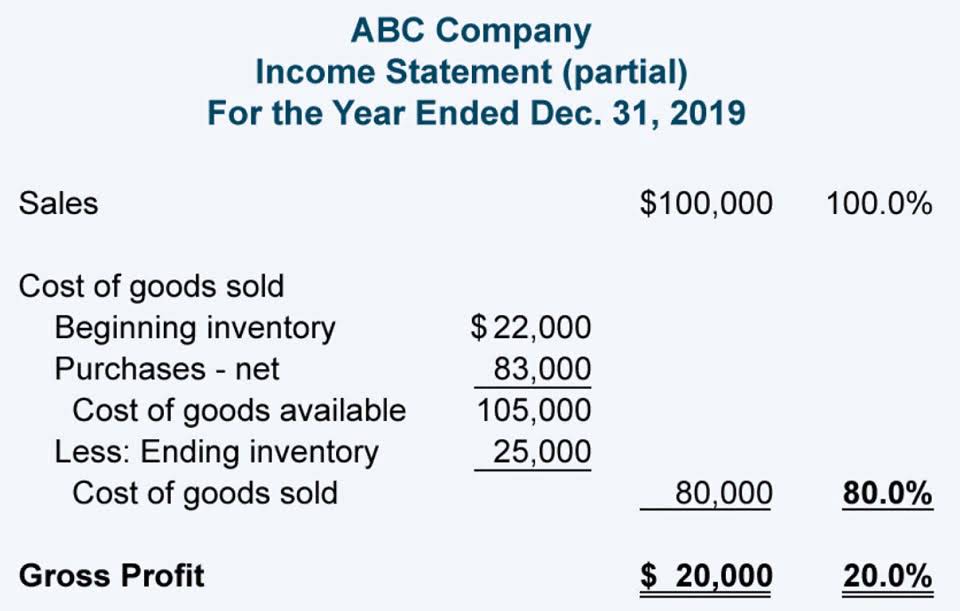
Generally speaking, bookkeepers help collect and organize data and may have certain certifications to do so for your business. On the other hand, accountants are generally equipped with an accounting degree and may even be state-certified CPAs. You can expect most bookkeepers to maintain the general ledger and accounts while the accountant is there to create and interpret more complex financial statements. The two key accounting systems are cash accounting and accrual accounting. If your business is still small, you may opt for cash-basis accounting. If you carry inventory or have accounts payable and accounts receivable, you’ll likely use accrual accounting.
What you need to set up small business bookkeeping
Posting debits and credits to the correct accounts makes reporting more accurate. At the end of every pay period, the bookkeeper will accumulate employee https://www.bookstime.com/ payroll details that include hours worked and rates. From there, the total pay is determined with the applicable taxes and withholdings.
Track expenses

You can also use apps like Shoeboxed, which are specifically made for receipt tracking. You need to know your net profit in order to do your taxes, and to figure that out, you need to know your total income and expenses. And the only way to know that for sure is to have accurate, up-to-date books.
Who should manage small-business bookkeeping tasks?
- Many leading companies have already taken on the challenge of setting scope 3 targets.
- The accrual accounting method records financial transactions when they occur rather than when cash exchanges hands.
- This step will allow you to do a cost-benefit analysis of your product or service to determine if the way you’re conducting business is resulting in profit or loss.
- To earn this certification, you must submit evidence of at least two years of full-time bookkeeping experience, sign a code of ethics, and pass a four-part certification exam.
- Keeping an accurate, up-to-date set of books is the best way to keep track of tax deductions (expenses that you can deduct from your taxable income).
When John Brown pays the invoice, and the payment is posted, the correct entry will be as displayed below. You’ll notice that the A/R account, which was debited in the first entry, will be credited (reduced) because the invoice has been paid. For example, if you prepare and post an invoice in the amount of $150 to John Brown for consulting, you’ll need to record that information in a journal entry.

For both sales and purchases, it’s vital to have detailed, complete records of all transactions. You’ll need to note the amount, the date, and any other important details to ensure you can accurately summarize your finances when it comes time for tax season. Purchase receipts should always be kept as proof that the purchases took place. If your business chooses to keep this task in-house, it’s best to stick to a predictable expense tracking schedule. Developing a bookkeeping routine prevents you from accidentally forgetting important steps in the accounting process. Cash covers both physical and electronic money (such as transferred funds).
How much should a small business bookkeeper charge?

The value of inventory can significantly impact a company’s financial statements, so accurate tracking and management is vital. At tax time, the burden is on you to show the validity of all of your expenses, so keeping supporting documents for bookkeeping 101 your financial data like receipts and records is crucial. Most accounting software today is based on double-entry accounting, and if you ever hire a bookkeeper or accountant to help you with your books, double-entry is what they’ll use.
What is the difference between bookkeeping and accounting?
How to Start a Bookkeeping Business in…
- Finding the right person to suit your business’s needs may also take some time and effort.
- With so many moving pieces (including assets and liabilities, and income and expenses), small business owners must stay on top of it all.
- Bookkeepers also deposit money, cash checks, and ensure correct credit card transactions.
- Although bookkeeping is an investment, it’s generally much more affordable than attempting to correct costly mistakes down the road.
- This is particularly true once the business accounts for its operational costs and recurring expenses.
- At the end of the appropriate period, the accountant takes over and analyzes, reviews, interprets and reports financial information for the business firm.
- The NACPB offers a certified public bookkeeper (CPB) certification, while the CPB offers a certified bookkeeper (CB) certification.
- The business owner has an investment, and it may be the only investment in the firm.
- Bookkeeping is the process of tracking income and expenses in your business.
- And Danone, as part of its journey to be carbon neutral by 2050, has set a goal to reduce its scope 1, 2 and 3 emission intensity by 50 percent by 2030.
- For the past 52 years, Harold Averkamp (CPA, MBA) has worked as an accounting supervisor, manager, consultant, university instructor, and innovator in teaching accounting online.
- For every new small business, it might not make sense to hire a bookkeeper straight away.
- Tracking your AR, usually with an aging report, can help you avoid issues with collecting payments.